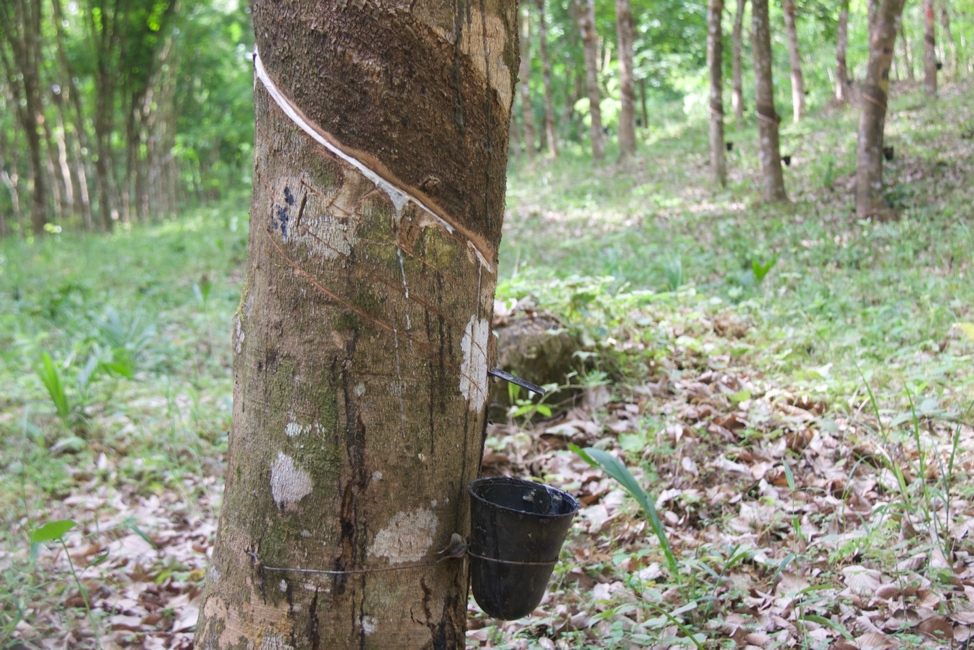Top: Liberian civil society actors have called on the European Union to include rubber to the list of commodities to be produced sustainably in a proposed regulation. The DayLight/James Harding Giahyue
By Varney Kamara
MONROVIA – Liberian civil society actors have suggested that the European Union include the rubber industry and financiers in the proposed European Union’s new regulation on agriculture products linked to deforestation and land degradation across the country.
The European Union, the second-largest importer of agriculture products from Africa next to Asia, named oil palm, cocoa, coffee, and timbers under its proposed deforestation-free products regulation but did not capture the rubber industry, which occupies 405,008.229 hectares or 14.8 percent of Liberia’s total forestland, according to an analysis by The DayLight.
Deforestation, which involves the clearing of wide areas of trees, undermines biodiversity and heightens the impact of climate change. Liberia, which covers 42 percent of the remaining area of the Upper Guinea Forest containing important animal and plant species, faces increasing threats from plantation owners expand.
“The regulation is good, but we need to look at other issues,” said Jonathan Yiah, a forest campaigner at the Sustainable Development Institute (SDI). “There is a need for us to include issues of accountability that will cover both producers and EU countries, including rights of communities.”
The EU guideline meant to improve governance across agriculture and forestry sectors also failed to include financiers of companies who have received billions of dollars from European Banks that have largely contributed to deforestation. A report by the Global Witness last year found Dutch Banks have spent US3.1 billion through loans provided to oil palm projects in West Africa. Golden Veroleum Liberia (GVL), the country’s largest oil palm company, reaped US$375 million of this amount through loans it secured from the Utrecht-based, Rabobank the report said.
Campaigners say adding companies’ financiers to the regulation would halt European investment in deforestation-related projects.
“Adding financiers to the regulation will send out a loud message of deterrence for people who may want to continuously use [their] money to exploit the system,” Yiah said at a daylong review of the document over the weekend, founded by the EU.
The proposed regulation on deforestation is a supporting arm of the VPA, a legally-binding trade agreement between the European Union and a timber-producing country outside the EU. Like the VPA, regulation “No 995/2010” seeks to ensure that timber and timber products exported to the EU market come from legal sources and that they are in compliance with the local and international trade regulations. Going forward, exporters must provide documents on land use rights, clearance on environmental protection assessment, sales rights, among others.
The review formed part of an ongoing consultation process taking place across producer countries in West Africa. The review was also meant to strengthen the EU’s Forest Law Enforcement Governance and Trade (FLEGT) and its Voluntary Partnership Agreement (VPA) with producer-countries. Next year, European parliaments are expected to finalize the document after their assessment of the inputs of civil society with its enforcement scheduled for 2024.




